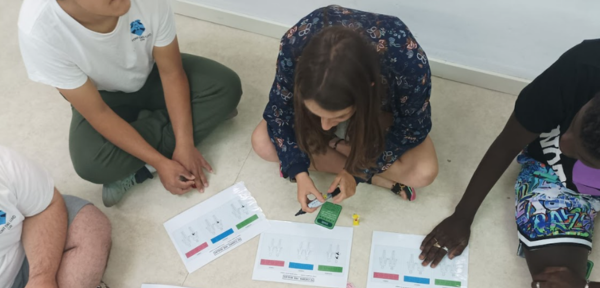GIAff4ID delivers national training sessions on sexual education for young people with intellectual disabilities

The GIAff4ID project aims to break stereotypes around the sexual and emotional education of young people with intellectual disabilities with the use of a game-based learning approach.
Released in July, the latest edition of the GIAff4ID newsletter spotlights the progress that has been made to deliver game-based learning activities to young people with intellectual disabilities in the 6 partner countries.The activities have been tailored to the needs of young people to educate them on crucial topics of sexuality, personal boundaries, and emotional awareness.
Key highlights from the trainings conducted across six countries include:
- In Italy the training engaged 11 participants and 4 educators. The "body-rule" game emerged as a standout, effectively facilitating open discussions about sexuality and personal boundaries. Participants demonstrated significant engagement, with positive feedback underscoring the game's success in making complex topics accessible and enjoyable.
- In Catalonia, trainings were held across three special education schools, involving 37 students and 6 educators. Educators observed that students with mild disabilities grasped the concepts effectively, though those with more complex disabilities faced challenges.
- In Turkey, despite initial shyness, participants gradually became more comfortable discussing sexual topics, with the activities proving moderately effective in raising emotional awareness and fostering a relaxed environment for sensitive discussions.
- In Belgium the training sessions centred on the transition from puberty to adulthood, covering physical changes, personal hygiene, and emotional management. Feedback highlighted the game's success in fostering open communication and understanding of sexual health, although some participants found certain topics challenging.
- In Bulgaria, the sessions featured interactive card games and activities focusing on personal relationships, sexual health, and emotional awareness. Participants responded positively, showing high levels of engagement and enjoyment, thus demonstrating the effectiveness of game-based learning in this context.
- In Greece training sessions focused on interactive storytelling and role-playing activities, aiming to enhance understanding of personal boundaries, consent, and healthy relationships among participants
The success of these laboratories in diverse educational settings across Europe underscores the potential of game-based learning to address complex and sensitive issues such as sexual education for young people with disabilities.
To read the full newsletter, click here.
To find out more about the GIAff4ID, click here.

